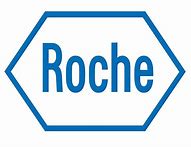Published February 26, 2023
A groundbreaking study presented at the American Academy of Allergy, Asthma & Immunology meeting revealed promising results for Roche’s Xolair in the treatment of severe food allergies. Developed over two decades ago as an asthma medication, Xolair, co-marketed with Novartis, demonstrated significant effectiveness in reducing allergic reactions in individuals with multiple severe food allergies.
The late-stage trial showcased compelling evidence, leading to the recent approval by the U.S. Food and Drug Administration (FDA) earlier this month. The approval extends to both adults and children as young as one year old, offering a newfound hope for those vulnerable to accidental exposures triggering severe allergic reactions.
Dr. Robert Wood, the lead researcher at Johns Hopkins Children’s Center in Baltimore, emphasized the potential impact of Xolair on patients and their families. While individuals using the drug will still need to avoid allergenic foods, the medication provides a sense of reassurance against inadvertent consumption, significantly improving their quality of life.
The prevalence of food allergies in the United States is alarming, affecting approximately 2% of adults and 4% to 8% of children, according to the U.S. Department of Agriculture. Each year, tens of thousands of emergency room visits, hospitalizations, and tragic deaths underscore the urgent need for effective treatments.
The trial, comprising 177 children aged 1 to 18 and three adults with severe food allergies, demonstrated remarkable outcomes. Participants, initially reacting to minute quantities of allergenic proteins, notably enhanced their tolerance levels following Xolair treatment. Notably, 67% of individuals receiving omalizumab could consume a significant amount of peanuts without experiencing adverse reactions, compared to a mere 7% in the placebo group.
Moreover, patterns were consistent across various allergens, showcasing Xolair’s broad efficacy spectrum. For instance, individuals with cashew allergies saw a notable increase in tolerance levels, with 41% tolerating exposure to higher quantities compared to a mere 3% in the placebo group.
The treatment regimen, spanning 16 to 20 weeks, coupled with additional therapy for 24 weeks, yielded promising outcomes, with most participants exhibiting stable or heightened tolerance thresholds.
The groundbreaking study, also published in The New England Journal of Medicine, heralds a new era in the management of severe food allergies. With FDA approval secured and promising results in hand, Roche’s Xolair emerges as a beacon of hope for millions grappling with the daily challenges posed by food allergies.
